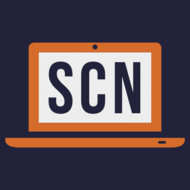(View Complete Item Description)
Critical Perspectives on Open Education
Short Description:
This book represents a starting point towards curating and centering marginal voices and non-dominant epistemic stances in open education. It includes the work of 43 diverse authors whose perspectives challenge the dominant hegemony.
Long Description:
Open education is at a critical juncture. It has moved on from its northern roots and is increasingly being challenged from its own periphery. At the same time, it finds itself marginalised and under threat in an educational sector infiltrated by corporate interests. However, rather than bunkering down, becoming blinkered or even complacent, the editors of this volume believe that the voices from the periphery should be amplified. This book represents a starting point towards curating and centering marginal voices and non-dominant epistemic stances in open education, an attempt at critical pluriversalism. It is a curated collection of 38 blog posts, lectures, talks, articles, and other informal works contributed by 43 diverse authors/co-authors and published since 2013. Each of these contributions offers a perspective on open education that can be considered marginal and that challenges the dominant hegemony.
Word Count: 83220
ISBN: 978-1-989014-22-6
(Note: This resource's metadata has been created automatically by reformatting and/or combining the information that the author initially provided as part of a bulk import process.)
Material Type:
Textbook
Authors:
Adele Vrana,
Amy Collier,
and Audrey Watters,
Autumm Caines,
Billy Meinke-Lau,
Bonnie Stewart,
Caroline Kuhn H.,
Catherine Cronin,
Cheryl Hodgkinson-Williams,
Chris Bourg,
Chris Gilliard,
Christian Friedrich,
Christina Hendricks,
Jaime Marsh,
Javiera Atenas,
Jesse Stommel,
Jess Mitchell,
Jim Luke,
Judith Pete,
Karen Cangialosi,
Laura Czerniewicz,
Lorna M. Campbell,
Maha Bali,
Matthew Moore,
Naomi Barnes,
Nicole Allen,
Paul Prinsloo,
Rachel Jurinich Mattson,
Rajiv Jhangiani,
Robin DeRosa,
Samantha Streamer Veneruso,
Sarah Hare,
sava saheli singh,
Sherri Spelic,
Siko Bouterse,
Simon Ensor,
Sukaina Walji,
Suzan Koseoglu,
Tannis Morgan,
Tara Robertson,
Taskeen Adam,
Tel Amiel,
Tutaleni Asino




















